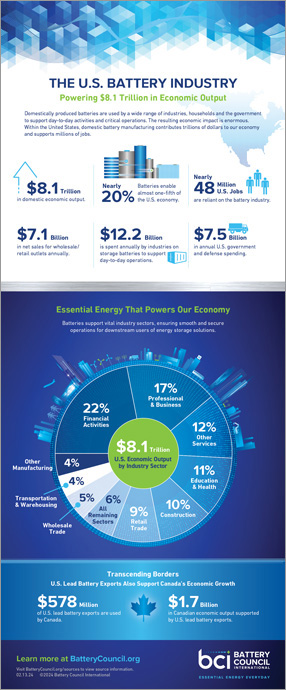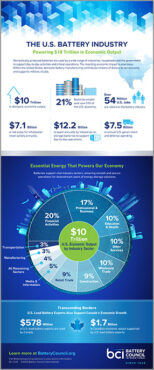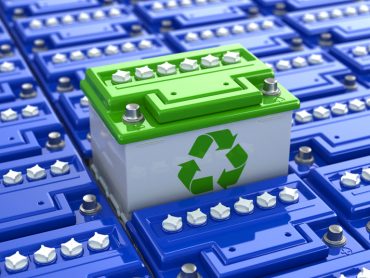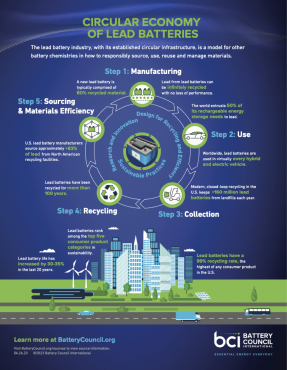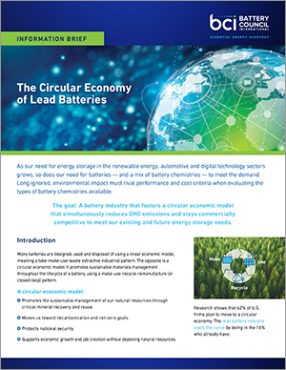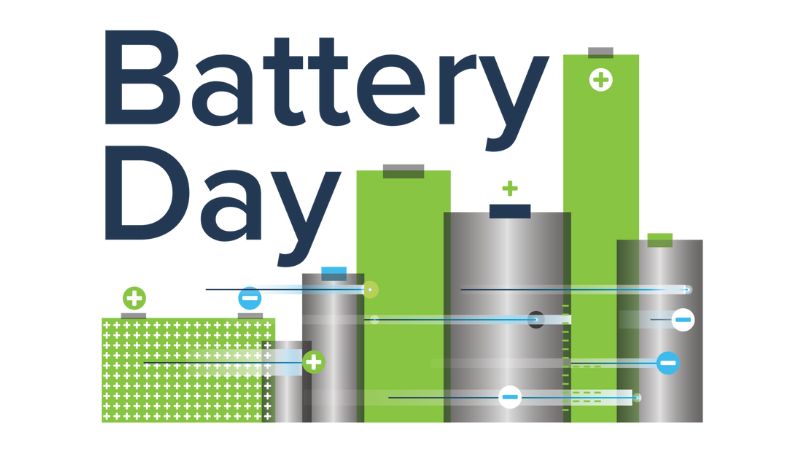
Celebrating Batteries That Power Nearly 20% of U.S. Economy
On National Battery Day, we typically celebrate the technology and industry that provides the energy storage to power our lives, work and hobbies. But the impact of batteries goes beyond their sheer usefulness. Have you ever considered their economic impact?
We know that batteries are critical in many industries, including the transportation and energy sectors. Lead batteries, in particular, have a long history of reliability and sustainability, and they are a key component of the U.S. domestic battery infrastructure.
Yet, dig a bit deeper, and the economic impact of batteries begins to take shape; it’s truly stunning.
Unveiling Staggering Economic Output and Jobs Data
The U.S. battery industry powers roughly $8.1 trillion worth of domestic industrial economic output annually, or roughly 20% of the U.S. economy. Plus, the industry provides nearly 48 million U.S. jobs that are related to, or reliant on, the battery industry.
This is according to a new report, “The Battery Fueled Economy: US Domestic and Supported Canadian Activity,” prepared by EBP, an independent research firm. Battery Council International (BCI) sponsored the report in partnership with EBP.
“The battery manufacturing industry is a hidden engine of economic growth for communities all across North America,” said Roger Miksad, President and Executive Director of BCI, the leading trade association for the battery industry. “Cars and trucks, data centers, forklifts, renewable energy storage and more rely on batteries every day to provide the essential energy that powers the modern economy.”
Learn more: U.S. Battery Industry Economic Impact Fact Sheet
A Successful Circular Economy
As the world moves to a low carbon future, the demand for all battery types to meet our critical needs will continue to grow. The successful circular economy of the U.S. lead battery industry provides a model for other battery chemistries to follow in this transition to a more sustainable global economy.
Lead batteries are designed to be infinitely recycled. Today, the coast-to-coast network of battery collection sites keeps over 160 million lead batteries from landfills annually. Instead, the batteries get redirected into the industry’s circular manufacturing process to help ensure a secure and reliable domestic supply of batteries to power our lives – and the economy. The industry’s closed-loop process supports a 99% recycling rate, with new lead batteries typically consisting of 80% recycled material.
Battery Council International is proud of the successful circular economy built by the lead battery industry, and stands ready to help emerging battery chemistries – from lithium-ion, flow, sodium-ion, and other innovative models – achieve similar sustainability and recyclability goals.
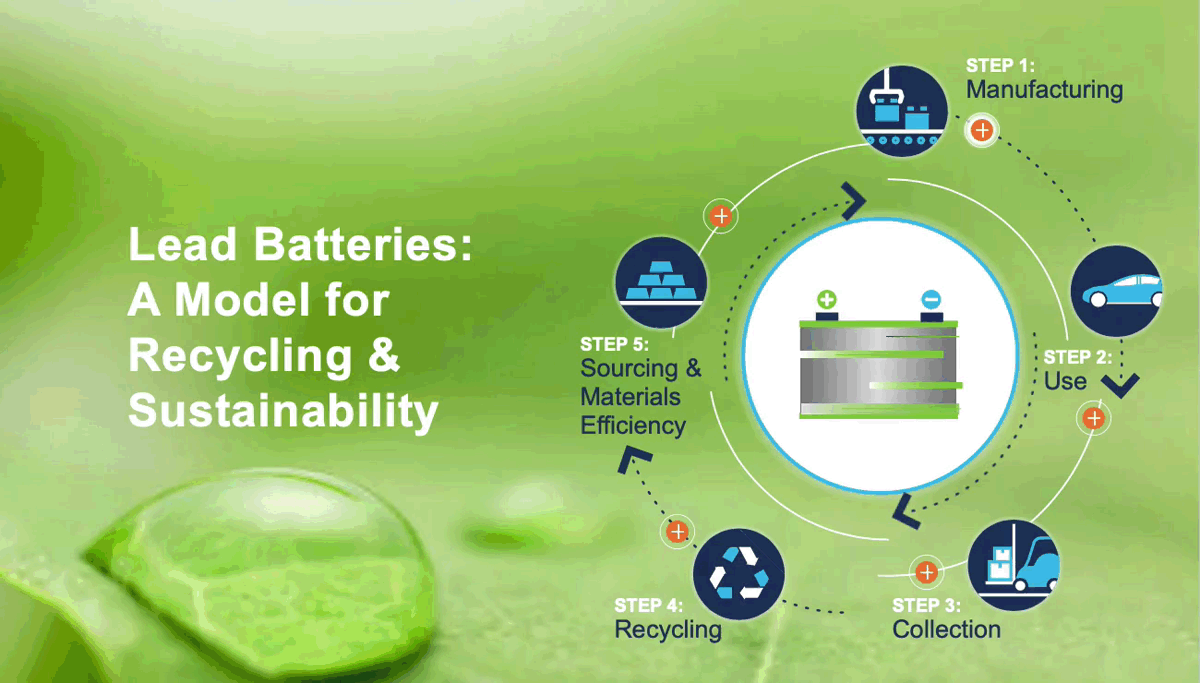
Batteries and Renewable Energy: A Sustainability Partnership
The impressive sustainability profile of lead batteries makes the technology an ideal partner for growing renewable energy storage for solar and wind energy. But beyond the battery industry’s support of a circular economy, the energy storage solutions provided by BCI’s members play a supporting role in the move towards green power generation via wind and solar technologies.
- Stabilize the Grid: Efficient energy storage bolsters the grid, so utilities can avoid replacing or making expensive upgrades to transmission lines designed to send baseload power out from central power stations.
- Bridge the Transition: As the move to electrification accelerates, modern energy storage solutions help support a mix of conventional and renewable energy.
- Regulate Variability: Batteries smooth out power variability and prevent disruptions. They store excess energy when demand is low and release it as demand increases.
- Reach Remote Areas: Batteries store and optimize renewable energy for basic conveniences and medical emergencies in remote and rural areas with no electricity.
Celebrate Batteries on National Battery Day
This year, we encourage you to save some post-Valentine’s Day love and appreciation for batteries on National Battery Day, Feb. 18.
“Batteries are a very small component of a much bigger product, but they are still a necessary component,” EBP writes. Indeed. They are essential to powering our lives, the economy and jobs throughout the country. Thank you, batteries!

